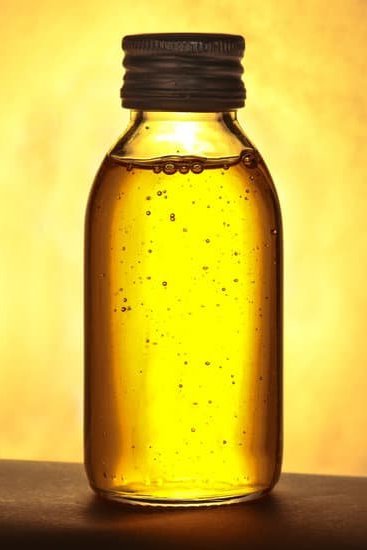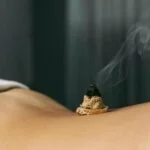Aromatherapy has gained immense popularity as a natural way to promote relaxation and relieve stress in today’s fast-paced world. Many people turn to essential oils to create a calming atmosphere in their homes or improve their overall well-being. The question that often arises is, “Is it safe to leave aromatherapy on overnight?” This article delves into the science behind aromatherapy, potential risks of prolonged exposure to essential oils, safe options for overnight use, and proper application techniques.
The use of essential oils in aromatherapy has been known to have various benefits on both the mind and body. When diffused or applied topically, certain essential oils can trigger responses in the brain that promote relaxation and reduce anxiety.
Lavender, chamomile, and rose are just a few examples of essential oils renowned for their calming properties. Additionally, the soothing scents of these oils can help improve sleep quality and create a peaceful environment conducive to unwinding after a long day.
However, while aromatherapy can be incredibly beneficial, it is important to exercise caution when using essential oils overnight. Prolonged exposure to concentrated essential oils can lead to skin irritation, respiratory issues, or other adverse reactions.
It is crucial to properly dilute essential oils before application and choose those that are considered safe for extended use. By following the recommended guidelines for overnight aromatherapy and being mindful of potential risks, individuals can enjoy the benefits of essential oils without compromising their well-being.
The Science Behind Aromatherapy
Aromatherapy has been a popular practice for centuries, known for its ability to promote relaxation and relieve stress. Essential oils are the key components used in aromatherapy, extracted from plants and flowers to create powerful scents that can affect mood and emotions. The science behind aromatherapy lies in how these essential oils interact with the brain and body to produce calming effects.
Interaction With the Brain
When inhaled, the molecules of essential oils travel through the nose and interact with the olfactory system. This system is directly connected to the brain’s limbic system, which is responsible for emotions, memories, and behavior. By stimulating the limbic system, essential oils can trigger responses that promote relaxation and reduce feelings of anxiety.
Effects on the Body
In addition to affecting the brain, essential oils can also have physical effects on the body when applied topically. When massaged into the skin or used in baths, certain essential oils can help relieve muscle tension, alleviate headaches, and improve circulation. These physical effects further contribute to a sense of calmness and well-being that is associated with aromatherapy.
Overall Benefits
The combination of interacting with both the brain and body makes aromatherapy a holistic approach to promoting wellness. By harnessing the power of natural essential oils, individuals can experience reduced stress levels, improved sleep quality, heightened focus, and overall emotional balance. Understanding how essential oils work within the body underscores their potential benefits when using aromatherapy for relaxation purposes.
Potential Risks of Leaving Aromatherapy on Overnight
Aromatherapy has gained significant popularity in recent years for its ability to promote relaxation, reduce stress, and improve overall well-being. The use of essential oils in aromatherapy is known to have a range of therapeutic benefits due to their natural properties. Many people enjoy incorporating aromatherapy into their daily routines, whether through diffusers, massages, or simply inhaling the scents directly from the bottle. However, one common question that arises is whether it is safe to leave aromatherapy on overnight.
1. Skin Irritation: One of the potential risks of leaving aromatherapy on overnight is the development of skin irritation. Essential oils are highly concentrated substances that can be harsh on the skin if not properly diluted.
Prolonged exposure to undiluted essential oils can cause redness, itching, or even chemical burns. It is important to always dilute essential oils with a carrier oil before applying them to the skin. Conducting a patch test before using any essential oil overnight can help prevent adverse reactions and ensure safety.
2. Respiratory Issues: Another concern when leaving aromatherapy on overnight is the possibility of respiratory issues. Breathing in essential oils continuously for an extended period can irritate the respiratory system and cause discomfort.
Some individuals may be more sensitive to certain essential oils and experience symptoms like coughing, wheezing, or shortness of breath. To avoid respiratory issues, it is recommended to limit exposure by using a diffuser with intermittent settings or ensuring proper ventilation in the room where aromatherapy is being used.
3. Precautions: While there are potential risks associated with leaving aromatherapy on overnight, there are steps that can be taken to mitigate these dangers and enjoy the benefits of essential oils safely.
It is essential to follow proper dilution guidelines, conduct patch tests before application, and choose mild essential oils known for their safety profiles when using aromatherapy overnight. By taking precautions and being mindful of individual sensitivities, individuals can create a relaxing and pleasant aromatherapy experience without compromising their health.
Safe Essential Oils for Overnight Use
When it comes to using aromatherapy overnight, selecting the right essential oils is crucial for a safe and effective experience. Certain essential oils are known for their gentle and calming properties, making them ideal choices for leaving on overnight. Lavender and chamomile are two top contenders in this category due to their soothing effects on the mind and body.
Lavender Essential Oil
Lavender essential oil is renowned for its calming and relaxing aroma, making it a popular choice for promoting restful sleep. Its gentle nature makes it suitable for leaving on overnight without concerns of skin irritation or other adverse reactions. Lavender has been studied extensively for its potential to reduce anxiety and improve sleep quality, making it an excellent option for those seeking a peaceful night’s rest through aromatherapy.
Chamomile Essential Oil
Chamomile essential oil is another mild yet effective option for overnight aromatherapy. Known for its soothing properties, chamomile has been traditionally used to alleviate stress and promote relaxation. Incorporating chamomile oil into your nighttime routine can help create a tranquil environment conducive to unwinding and preparing for sleep. Its gentle floral scent is unlikely to cause any irritation when left on overnight.
Other safe essential oils that can be considered for leaving on overnight include ylang-ylang, bergamot, and frankincense. It’s important to note that individual sensitivities may vary, so conducting a patch test before widespread use is always recommended.
With proper dilution and application, these essential oils can offer benefits like improved sleep quality and reduced stress levels when used during the night. Ultimately, choosing the right essential oil that suits your preferences and needs will enhance your overall aromatherapy experience at bedtime.
Proper Dilution and Application
Aromatherapy is a popular method for promoting relaxation and reducing stress, with essential oils being the key component in this practice. However, when it comes to using aromatherapy overnight, it is important to consider the safety aspects of leaving essential oils on the skin for an extended period. Proper dilution and application of essential oils are crucial to ensure a safe and effective experience.
To ensure safety during overnight use of aromatherapy, it is essential to dilute essential oils properly before applying them to the skin. Undiluted essential oils can cause irritation or sensitization, especially when left on for an extended period.
The general rule of thumb for dilution is to use 1-3 drops of essential oil per teaspoon (5ml) of carrier oil such as coconut oil, almond oil, or jojoba oil. This helps reduce the risk of skin reactions while still allowing the benefits of the essential oil to be absorbed.
When applying diluted essential oils for overnight use, it is important to target specific areas where absorption will be most effective. Areas such as the wrists, neck, chest, or soles of the feet are commonly recommended for applying essential oils.
These areas have a high concentration of blood vessels close to the surface of the skin, allowing for quicker absorption and greater effectiveness of the essential oils. Additionally, massaging the diluted oil into the skin gently can help enhance absorption and promote relaxation.
- Properly dilute essential oils before applying them
- Use carrier oils like coconut oil or almond oil
- Apply diluted essential oils to target areas like wrists or chest
- Gently massage diluted oil into the skin for better absorption
- Avoid using undiluted essential oils directly on the skin
Alternative Methods for Overnight Aromatherapy
Aromatherapy has gained popularity for its ability to promote relaxation, reduce stress, and enhance overall well-being. Many individuals turn to essential oils as a natural and holistic approach to self-care. While the idea of leaving aromatherapy on overnight may seem appealing for continuous benefits, many wonder: is it safe to leave aromatherapy on overnight?
Prolonged exposure to essential oils can pose potential risks, including skin irritation and respiratory issues. When considering overnight use, it is crucial to understand the safety precautions associated with aromatherapy. Choosing the right essential oils and proper application methods are key factors in ensuring a safe experience.
Alternative methods exist for those who wish to enjoy the benefits of aromatherapy without leaving oils on overnight. One popular option is using a diffuser, which disperses essential oil molecules into the air for inhalation. Another alternative is applying diluted essential oils to a pillow or bed linens to promote relaxation during sleep. These methods provide a more controlled and indirect way of experiencing aromatherapy benefits without the risks associated with leaving oils on the skin for extended periods.
| Potential Risks | Safety Precautions |
|---|---|
| Skin Irritation | Dilute essential oils properly before use |
| Respiratory Issues | Use essential oils in well-ventilated areas |
Precautions for Overnight Aromatherapy
Aromatherapy has gained immense popularity as a natural way to promote relaxation, reduce stress, and improve overall well-being. Essential oils, derived from plants, are often used in aromatherapy to create calming and soothing scents. Many individuals turn to aromatherapy to unwind after a long day or to create a peaceful environment for restful sleep. However, a common question that arises is whether it is safe to leave aromatherapy on overnight.
When considering leaving aromatherapy on overnight, it is important to be aware of the potential risks associated with prolonged exposure to essential oils. While essential oils can offer numerous benefits when used correctly, they can also pose certain dangers if used improperly. Some risks of leaving aromatherapy on overnight include skin irritation, allergic reactions, and respiratory issues. To mitigate these risks, it is crucial to exercise caution and follow safety guidelines when using essential oils for extended periods.
To ensure a safe and comfortable experience when using aromatherapy overnight, there are several precautions that can be taken. One important tip is to conduct a patch test before applying essential oils generously all over the body.
This involves applying a small amount of diluted oil to a small area of skin and monitoring for any adverse reactions over 24 hours. Additionally, proper ventilation in the room where aromatherapy is being used can help prevent respiratory issues that may arise from inhaling concentrated essential oil vapors throughout the night.
| Precautions | Benefits |
|---|---|
| Conducting a patch test | Ensuring skin safety |
| Proper ventilation | Preventing respiratory issues |
Conclusion
In conclusion, aromatherapy has gained widespread popularity for its potential to promote relaxation and stress relief through the use of essential oils. The science behind aromatherapy reveals how these oils can interact with the brain and body to produce calming effects, making it a valuable tool for self-care routines. However, when considering leaving aromatherapy on overnight, it is crucial to weigh the potential risks associated with prolonged exposure to essential oils.
While some essential oils are generally considered safe for overnight use, such as lavender and chamomile, there are still risks to be aware of, including skin irritation and respiratory issues. Proper dilution and application methods are key in ensuring safety during overnight aromatherapy sessions. Additionally, alternative methods like using a diffuser or applying oils to a pillow offer a safer way to enjoy the benefits of aromatherapy without risking negative side effects from prolonged exposure.
In determining whether it is safe to leave aromatherapy on overnight, individuals should take precautions such as conducting patch tests, ensuring proper ventilation in the room, and being mindful of any potential sensitivities. Ultimately, while aromatherapy can be a beneficial addition to nightly routines for some individuals, it may not be suitable for everyone. Consulting with a healthcare professional or aroma therapist could provide further guidance on incorporating aromatherapy safely into one’s lifestyle.
Frequently Asked Questions
Can I Leave My Aromatherapy on Overnight?
It is generally not recommended to leave aromatherapy on overnight. While some essential oils can be relaxing and promote sleep, prolonged exposure to the scent may cause headaches or irritate your respiratory system. It’s best to use a timer or diffuser with an automatic shut-off feature.
Is It Safe to Sleep With Aromatherapy?
It is safe to sleep with aromatherapy as long as you practice caution and use it properly. Make sure the room is well-ventilated, dilute essential oils properly, and do not apply them directly to your skin before bedtime. Always follow safety guidelines for each oil.
Can Essential Oils Be Left Overnight?
Essential oils can be left overnight in a diffuser with proper ventilation and precautions. However, it’s important not to overdo it or expose yourself to strong scents for an extended period. Some people might be sensitive to certain oils, so listen to your body’s reactions.

Are you looking for a natural way to improve your health and wellbeing?
If so, aromatherapy may be the answer for you.





